by Urban Faith Staff | Jul 4, 2023 | Black History, Headline News, Heritage |
In the nineteenth century, many American communities and cities celebrated Independence Day with a ceremonial reading of the Declaration of Independence, which was usually followed by an oral address or speech dedicated to the celebration of independence and the heritage of the American Revolution and the Founding Fathers. On July 5, 1852, the Ladies’ Anti-Slavery Society of Rochester, New York, invited the Black abolitionist and civil rights leader Frederick Douglass to be the keynote speaker for their Independence Day celebration. The Fourth of July Speech, scheduled for Rochester’s Corinthian Hall, attracted an audience of 600. The meeting opened with a prayer and was followed by a reading of the Declaration of Independence. When Douglass finally came to the platform to deliver his speech, the event took a jarring turn. Douglass told his audience, “This Fourth of July is yours, not mine. You may rejoice, I must mourn.” And he asked them, “Do you mean, citizens, to mock me, by asking me to speak today?”
Within Douglass’ now-legendary address is what historian Philip S. Foner has called “probably the most moving passage in all of Douglass’ speeches.”
What, to the American slave, is your 4th of July? I answer: a day that reveals to him, more than all other days in the year, the gross injustice and cruelty to which he is the constant victim. To him, your celebration is a sham; your boasted liberty, an unholy license; your national greatness, swelling vanity; your sounds of rejoicing are empty and heartless; your denunciations of tyrants, brass fronted impudence; your shouts of liberty and equality, hollow mockery; your prayers and hymns, your sermons and thanksgivings, with all your religious parade, and solemnity, are, to him, mere bombast, fraud, deception, impiety, and hypocrisy—a thin veil to cover up crimes which would disgrace a nation of savages. There is not a nation on the earth guilty of practices, more shocking and bloody, than are the people of these United States, at this very hour.
On this and every July 4th, Americans might do well to re-read and reflect on Douglass’ famous message. It challenges us to move beyond the biases and blind spots of our own cultural privileges and consider those around us for whom, as Langston Hughes said, “America has never been America.”
Read Douglass’ complete speech here, and watch actor Danny Glover recite an excerpt from the address below.
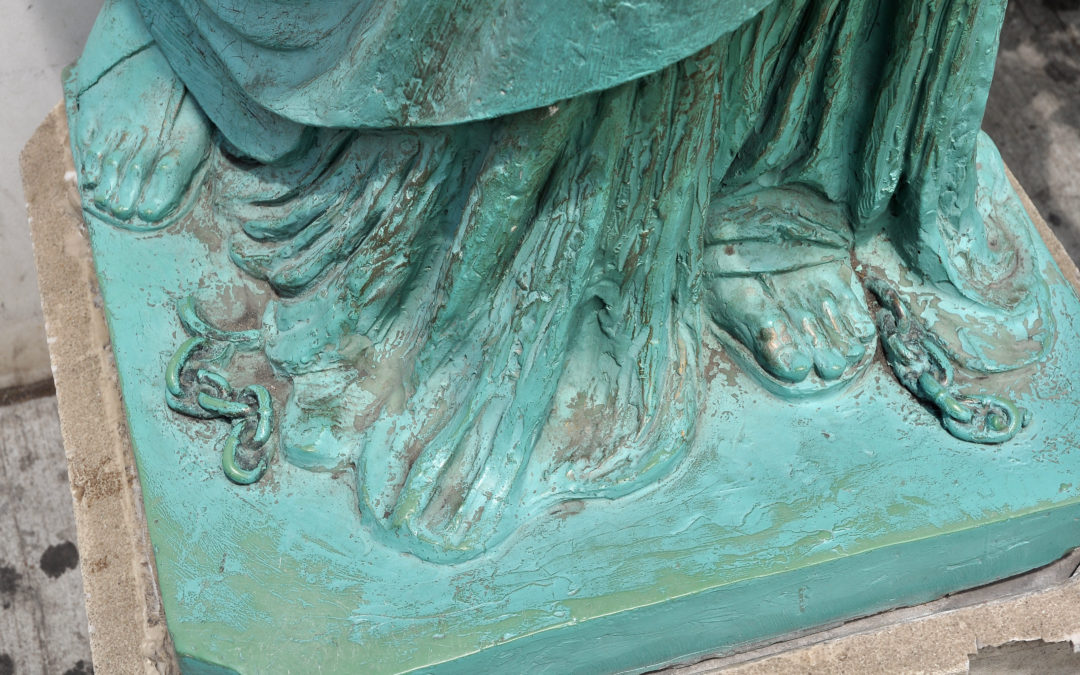
by Denise Anita Hill | Jun 27, 2023 | Black History, Commentary, Headline News |
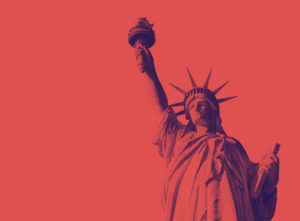
“Liminal” is defined as the space between. It is the no-longer before, and the not-yet other. It is the space where we find ourselves caught between the light of Juneteenth and the shadow of July 4th. We are caught in the space between. No longer enslaved on plantations, but not yet with a freedom fully realized. It’s an imaginative space; an emergent space; and a space for reflection.
It is in this space that I am reminded of the Statue of Liberty, and the broken chains at her feet. I first learned about the chains in 2017, at a training in Chicago led by Dr. Joy DeGruy. She told the story of how the chains were part of the original vision of the statue, how American financiers insisted that the chains be removed, and how the sculptor still managed to sneak the chains in under Lady Liberty’s garments, lying broken at her feet. She told the story how the National Park Services didn’t talk about the chains unless someone happened to ask. The chains were not part of the Park Services’ narrative about the Statue. In the Statue’s 135-year history, information about the chains have only officially been included in the park service’s literature and website for about the past six years.
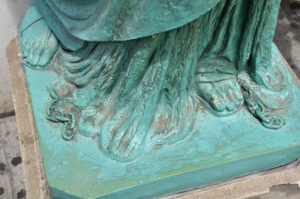
Yasmin Sabina Khan goes even deeper in her work, “Enlightening the World: The Creation of the Statue of Liberty.” Conceived in 1865 by Édouard de Laboulaye, sculpted by Frédéric-Auguste Bartholdi over the course of approximately 20 years, the Statue of Liberty was unveiled at New York’s Ellis Island as “Liberty Enlightening the World” in October of 1886. At the base of the Statue, out of view from anyone looking from ground level, lie the broken chains of slavery. Visible only from helicopter or drone, the chains weren’t spoken of. Laboulaye was an ardent abolitionist. With the end of the US Civil War in 1865, Laboulaye imagined a gift that would embody the significance of the liberation of those who were enslaved. Bartholdi’s original model placed the torch of liberty in one hand, and broken chains in the other. The Statue of Liberty’s entire visual and artistic vocabulary was meant to both celebrate and honor the freedom of those enslaved in America. But financiers balked at the idea of chains placed anywhere on the Statue, and after profuse opposition by Bartholdi, the chains were removed, replaced by a tablet emblazoned with the Roman numerals for July 4, 1776. Since they aren’t easily visible, and since there was no concerted public effort to connect the statue with the narrative of the abolition of chattel slavery, the memory of it’s connections faded. And for the past 135 years, barely anyone remembered the chains.
For Black people within this liminal march of history, the Statue has long sat as a symbol of hypocrisy—celebrating a freedom that became connected to a honoring of ideals that have yet to be realized. There’s much to unpack about our historical reactions to the unveiling of the Statue, but there’s also much to be said about the loss of memory. The obscuring and loss of communal memory around the presence, history, and meaning of the chains at the feet of the Statue of Liberty is important because it reminds us that memory is important. And not only is memory important, memory is crucial in this liminal space between freedom and freedom. Memory is what helps us imagine. Memory is what helps us create. It’s something we can use to construct and define a new world, a new freedom, a new way of being. We must tap into it.
In his book, “Something Torn and New: An African Renaissance” Ngugi wa Thiong’o writes, “creative imagination is one of the greatest of re-membering practices…” and that “memory is the link between the past and the present, between space and time, and it is the base of our dreams.” Harnessing memory is our work. These broken chains at our feet, the light of Juneteenth, the long shadow of July 4th—this liminal space—all of it is here to remind us that we have worlds to build. We have a freedom to define—to make clear and meaningful. It is within this creative tension where we have the possibility to gain a clear-eyed view of what a full realization of freedom could look like, both collectively as a community and a country, and particularly in the living out of our individual lives and individual situations. But understand, there can be no clear expression of freedom without integrating communal memory into the foundation of work.
If memory is the base of our dreams, what are our dreams of freedom? What if we could transform freedom in the same ways that we’ve always transformed culture? In this liminal space of history, we’ve seen Black creativity, Black genius, Black art, and Black joy shift and drive culture (and economies) around the world. Have we fired that same ingenuity in our definitions of freedom? What would the world look like, if we defined and constructed freedom based on our criteria, our imaginations, our memory? It might look something like a society built on the idea of thriving rather than destruction. It might look something like a society built around dignity—of humans, animals, and the earth. It might look something like systems built to nourish and sustain life rather than profit. Freedom could look like so many different visions of more and better. The dreaming is up to us.
We have work to do. We have worlds to build. We have a freedom to create. And as we go about protesting and advocating for our lives, here in this liminal space between freedom that was and freedom that might yet be, may we remember that the work we have to do, the worlds we are building, and the freedom we are creating, cannot reach their fullest expression without our communal memory.
Let us remember the chains broken at our feet, so that we may creatively continue in our generation’s leg of the journey toward the light of freedom fully realized.
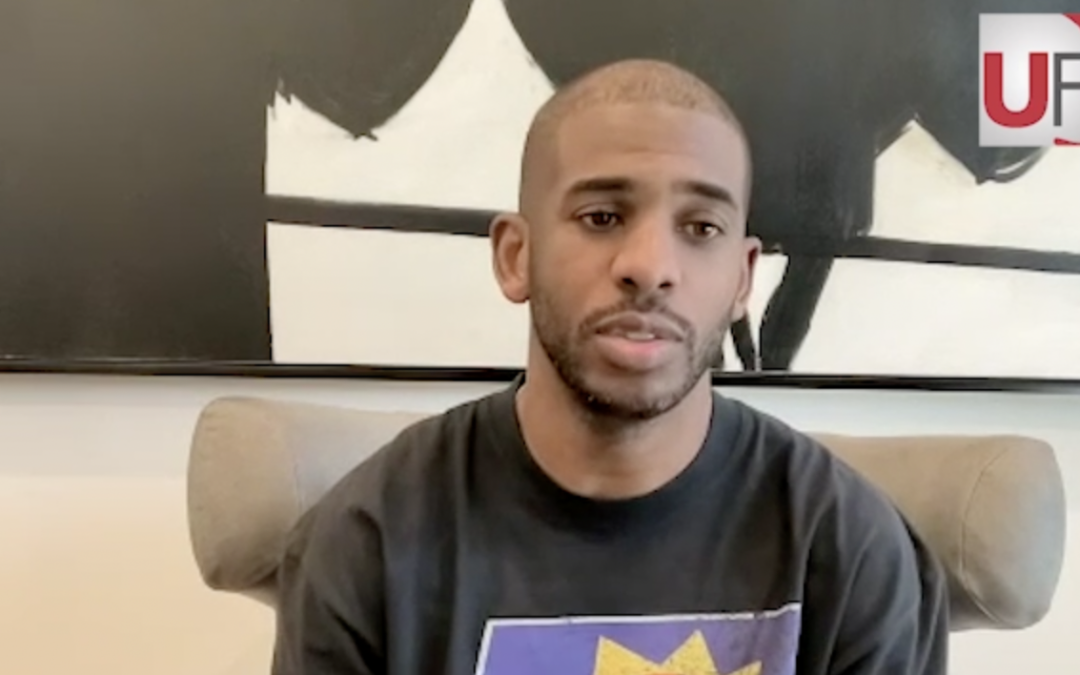
by Maina Mwaura, Urban Faith Contributing Writer | Jun 21, 2023 | Commentary, Entertainment, Faith & Work, Headline News |
Chris Paul is one of the most accomplished NBA Veterans to have longevity in his career. He is also one of the most pivotal players in history having served as the President of the NBA Players Association during a time when many changes were made inside and outside of the league. But the most important thing to him is not on the court, but on the sidelines: his family and their consistency in his life. UrbanFaith sat down with Chris Paul to talk about his new book Sixty-One telling his story of how his family made him the man he is today. The full interview is above.
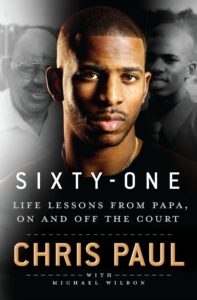
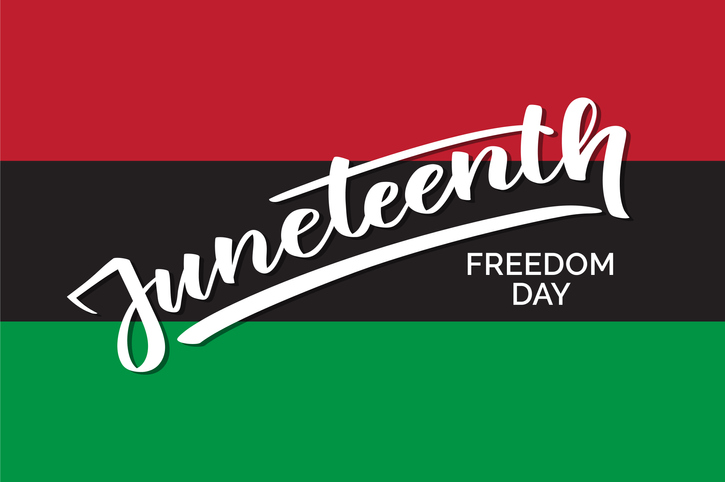
by Allen Reynolds, UrbanFaith Editor | Jun 19, 2023 | Black History, Commentary, Headline News |
Juneteenth, observed June 19 each year, has a long history of commemoration among African Americans in the United States. It commemorates the day that the last slaves in the former Confederacy received the Emancipation Proclamation, officially acknowledging their freedom on June 19, 1865 nearly 2 years after it was officially issued. But within the past few years, Juneteenth has become a national Black holiday. It has been celebrated by Black people in Galveston, Texas and the immediate surrounding area for generations. UrbanFaith sat down with Valerie Boyer, an educator, minister and Galveston native to talk about the history of Juneteenth and its meaning today as it becomes a federal holiday in the United States of America.
by Allen Reynolds, UrbanFaith Editor | Jun 16, 2023 | Commentary, Headline News, Prayers & Devotionals, Relationships |
 Every year during Father’s Day, a wave of complexity sweeps across the country. Father’s Day can be an great occasion for celebration, a reminder of loved ones lost, a day of sadness for those who did not grow up with their fathers, a day of angst for those who do not like their fathers, and a day of relaxation for the dads who treat it as a break. And every year in churches, we try to figure out how to approach and celebrate Father’s Day. Father’s Day is not celebrated in our society the way Mother’s Day is, and everyone knows it. We know how to celebrate mothers. We know what to get them; the flowers, clothes, crafts, candies, meals, and more are readily available with updates each year. But Father’s Day feels mysterious. We ask ourselves, did we already get this tie? These socks? This outdoor equipment? Why is it that we may struggle so much to honor fathers but find it easy to bless our mothers? The answers are unclear and varied. But if we start with figuring out how to honor God as our heavenly Father, it may help us get better at honoring our earthly fathers.
Every year during Father’s Day, a wave of complexity sweeps across the country. Father’s Day can be an great occasion for celebration, a reminder of loved ones lost, a day of sadness for those who did not grow up with their fathers, a day of angst for those who do not like their fathers, and a day of relaxation for the dads who treat it as a break. And every year in churches, we try to figure out how to approach and celebrate Father’s Day. Father’s Day is not celebrated in our society the way Mother’s Day is, and everyone knows it. We know how to celebrate mothers. We know what to get them; the flowers, clothes, crafts, candies, meals, and more are readily available with updates each year. But Father’s Day feels mysterious. We ask ourselves, did we already get this tie? These socks? This outdoor equipment? Why is it that we may struggle so much to honor fathers but find it easy to bless our mothers? The answers are unclear and varied. But if we start with figuring out how to honor God as our heavenly Father, it may help us get better at honoring our earthly fathers.

God is Our Father
The Bible refers to God as a father in multiple places in the Old and New Testament. Moses notes in Deuteronomy 1:31 that God cared for Israel in the wilderness like a father cares for their child. The Lord protects and provides for Israel as He leads them out of bondage. He says at the end of the same book that God is to be respected because He fathered Israel by creating, forming, and establishing them, and He mothered them by giving birth to them. Psalm 68:5 identifies God as the Father of the fatherless and defender of widows. God is the Father who cares for us when human fathers are not present. Isaiah 9:6 prophesies that God is the everlasting Father, and Malachi proclaims that all in his audience are children of the same Father God. But Jesus makes this relationship with God even clearer. Jesus calls God His Father, and He is identified as the Son of God in each of the Gospels. In Galatians 4:5-7, Paul explains that believers in Christ are children of God, and John declares that truth in 1 John 5:1. So it is clear in scripture that God is a Father to all who will receive Him as one. But what does that mean for us?
How God Relates To Us As A Father
God is a Spirit and cannot be fully understood or explained using any analogy or even human language. God is greater than any roles we could use to try to explain Him: father, mother, king, brother, friend, lover, lord, healer, provider, protector, or otherwise. But God chooses to reveal Godself in ways we can understand so we can have a genuine relationship with God. It is because of the descriptions of God relating as a Father in Scripture that we can relate to God a little better and also to human fathers a little better. God relates as a father in many ways but a few key ones we’ve already mentioned are as a source of identity, a protector, a provider, a caregiver, and a guide. God rebukes David and also encourages Him which other biblical fathers do. Hebrews 12 makes it clear that God corrects us because we are His children. Galatians 4 underscores that God blesses us because we are His children. God is present with us in good times and bad times, like any good father. God leads, encourages, provides, protects, corrects, counsels, comforts, and instructs us in the wilderness and the places of plenty as a good Father. Most of all, God loves us as our heavenly Father. God has shown Himself to be a good Father, but how can we be good children to God our Father?
How We Honor God Our Father
Jesus gives us the perfect example of what it means to be a good child of God, demonstrating how to honor God. Summed up, it is to love God. We love God through obedience. We love God through spending time with Him. We love God through caring about what He cares about. We love God through giving to other people, because He doesn’t need our money. We love God by doing the work and ministry He has called us to do. We love God by loving our neighbors well. We love God by doing justice. We love God by using our lives to bring Him glory, which is to live in a way that makes Him proud. Jesus explains at length in John 8:31-58 that Father God loves it when we believe in Jesus and do what He said. 1 John 5:1-5 is exceedingly clear that obeying God and loving others is how we can express our love to God. Now that we understand how to honor God as our Father, how do we honor our earthly fathers?

How Can We Honor Our Human Fathers
Human fathers can never truly compare to our Father God. We shouldn’t even expect them to reach that standard. But they should follow God as the standard, and we should honor them as our fathers if we have good relationships with them. Earthly fathers can be honored in many of the same ways as our Heavenly Father.
It all comes back to loving our dads. When we care about the things our fathers care about, it makes them happy. It may be sports, cooking, fishing, movies, work, decorating, or some other hobby. When we show care about what dads care about, it brings them honor. We give to dads because they do need our money and gifts, unlike God. Give them something they like, and ask for ideas if you need them. Spend time with your dad if you can. Many people wish they could. If you have an opportunity, then take advantage–it will definitely bring your dad happiness on Father’s Day.
When young children do what their father says, it brings their father honor and happiness. As a father myself, I cannot tell you the joy I have when my children do what I told them to do without complaining, demonstrating a bad attitude, giving up, or getting distracted. When we are older, this obedience becomes conversational. If you want to honor your father on Father’s Day, ask him what He wants! Sometimes we spend so much time trying to figure out what our dads want instead of simply asking them and then following through. This simple form of relating can bring honor to a father like nothing else.
But many dads will tell you the best honor their children can give them on Father’s Day or any other day is to live lives that make them proud. Just keep following God your Father. If you honor God with your life, you can rest assured you are making our Heavenly Father and every good dad proud.
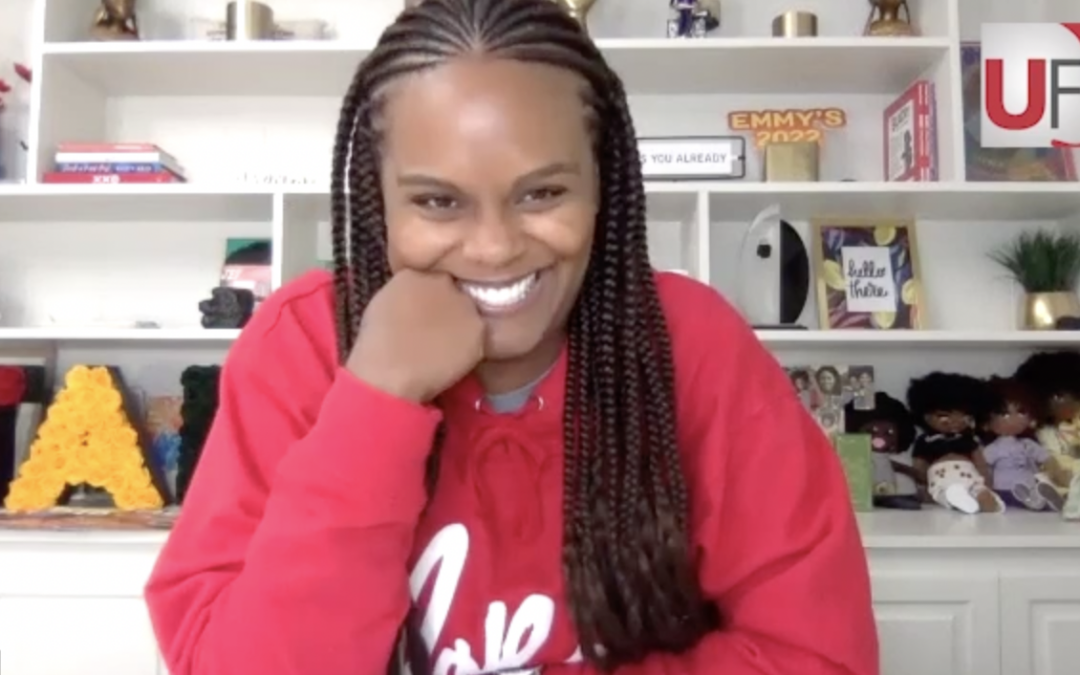







 Every year during Father’s Day, a wave of complexity sweeps across the country. Father’s Day can be an great occasion for celebration, a reminder of loved ones lost, a day of sadness for those who did not grow up with their fathers, a day of angst for those who do not like their fathers, and a day of relaxation for the dads who treat it as a break. And e
Every year during Father’s Day, a wave of complexity sweeps across the country. Father’s Day can be an great occasion for celebration, a reminder of loved ones lost, a day of sadness for those who did not grow up with their fathers, a day of angst for those who do not like their fathers, and a day of relaxation for the dads who treat it as a break. And e
